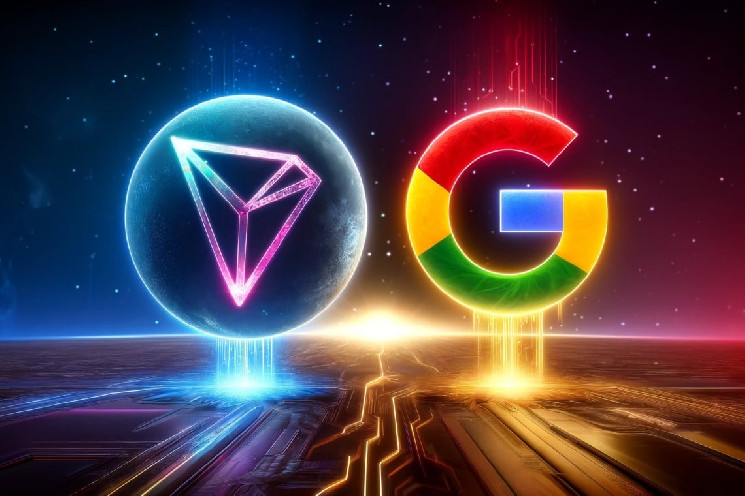One of the most recent and significant developments is the announcement that Google Cloud has been added as a super representative candidate on the Tron blockchain.
This move represents a significant step forward for Tron and for the entire cryptocurrency ecosystem, highlighting the growing importance of collaboration between tech giants and decentralized blockchain platforms.
Google Cloud: a new Super Representative candidate in Tron’s blockchain
Tron is one of the best-known blockchain platforms in the world, founded by Justin Sun in 2017. Its mission is to build an infrastructure for a truly decentralized internet, allowing users to create and distribute content without centralized intermediaries.
Tron’s blockchain is known for its scalability, high transaction speed, and low fees, factors that make it a popular choice for developers and users.
In the Tron network, super representatives (SR) play a crucial role. They are responsible for validating transactions and producing new blocks on the blockchain. Super Representatives are elected by the Tron community through a voting process, and their role is essential to maintain the security, stability and decentralization of the network.
Being a Super Representative is not only a recognition of trust and respect from the community, but also comes with significant technical and operational responsibilities.
The inclusion of Google Cloud as a super representative candidate on Tron is a significant event. Google Cloud is one of the largest and most respected cloud service providers in the world, with a wide range of tools and technology infrastructure that can significantly enhance the capabilities of any blockchain network.
Their participation as an SR candidate in the Tron Network signals a growing recognition of the importance of blockchain and cryptocurrencies by major technology companies.
Implications of collaboration
Google Cloud’s inclusion as a super-representative candidate on Tron has several important implications. First and foremost, it demonstrates the maturity and stability of the Tron network, making it attractive to high-profile partners like Google Cloud.
Second, the partnership could lead to significant technology improvements for Tron, thanks to Google Cloud’s advanced computing capabilities and infrastructure. Finally, Google Cloud’s participation could encourage other major companies to explore and invest in blockchain technologies, further accelerating adoption and innovation in the sector.
The Tron community can expect a range of benefits from this partnership. With Google Cloud as a super representative candidate, the network could experience greater stability and security, thanks to Google’s robust and reliable infrastructure.
Furthermore, the presence of Google Cloud could attract new developers and projects to the Tron platform, enriching the ecosystem with new applications and services. Google Cloud’s reputation as a technology leader could also boost Tron’s credibility and attractiveness to users and investors.
Looking to the future, the collaboration between Tron and Google Cloud could pave the way for further innovations and synergies.
New projects could emerge that leverage Google Cloud’s advanced computing capabilities to develop more advanced and scalable decentralized applications. Additionally, the partnership could spur further research and developments in the blockchain space, addressing some of the technical and operational challenges the industry has yet to overcome.
Conclusion
Google Cloud’s inclusion as a super-representative candidate on the Tron blockchain is a pivotal moment for both parties. It marks an important recognition of the importance of blockchain technology and highlights the potential of collaborations between major technology companies and decentralized platforms.
For the Tron community, this development represents an opportunity to continue to grow and innovate, and help build a more decentralized and connected future.

